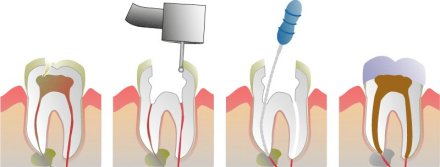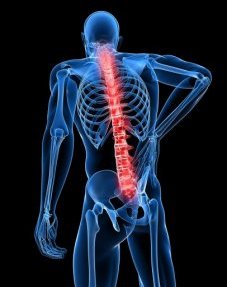 |
Friday, 17 May 2013
Cholesterol is NOT the enemy but the Inflammation is!
Mood:
 d'oh
Topic: Health d'oh
Topic: Health

The collective psyche of American society is long overdue for a major paradigm shift in its understanding of fats, inflammation, cholesterol, and the true cause of most chronic illnesses. Even many physicians, who should know better, still argue that cholesterol is evil and that sticking to a low-fat diet is good for health. But the fact of the matter is that avoiding fats is toxic to your health, and consuming the many food additives that commonly replace them - these include synthetic trans fats, refined sugars, and processed grains - are a primary cause of disease-causing inflammation. It all makes sense if you just stop and consider the native role cholesterol plays in protecting arteries against lesions and other damage. Rather than being the cause of plaque buildup in the circulatory system, cholesterol is actually the healing agent the body sends to sites that have been damaged by inflammation. In other words, if you have too much cholesterol buildup in your arteries, your real problem is too much inflammation rather than too much cholesterol, and a whole different mitigatory approach is required to address the problem. "It's the inflammation in the vessels that starts the lesion," says Dr. Beverly Teter, a lipid biochemist from the University of Maryland who has been researching fats and their affect on the human body for many years, as quoted by CBN.com. "The body then sends the cholesterol like a scab to cover over it to protect the blood system and the vessel wall from further damage." This runs completely contrary to the prevailing medical dogma, which still maintains that saturated fat and cholesterol are silent killers that can lead to heart disease, diabetes and other forms of chronic illness. As a result, millions of Americans have been duped into avoiding these necessary nutrients to their own demise, while they instead gorge on unhealthy vegetable oils, trans fats, sugars, grains, and phony low-fat junk foods. "When choosing which fats to eat, pick the ones that are high in omega-3 fats and also choose natural saturated fats," advises Lorie Johnson from CBN.com. "On the other hand, stay away from the fats that lead to inflammation, such as trans fats and omega-6 fats," she adds, noting that most of the oils used in processed food are unhealthy vegetable oils posing as "nutritious." Saturated fat and cholesterol necessary for proper cellular function, brain health What few people today realize is that their bodies actually require both saturated fat and cholesterol for proper metabolism, brain health, hormone balance and cellular homeostasis. Without these two important nutritional components, a cascade of health problems can ensue, including debilitating brain conditions like Alzheimer's and Parkinson's. This is especially true for people who take toxic statin drugs to artificially lower their cholesterol levels. "People with high cholesterol live the longest," says Dr. Uffe Ravnskov, M.D., Ph.D. "Consider the finding of Dr. Harlan Krumholz of the Department of Cardiovascular Medicine at Yale University, who reported in 1994 that old people with low cholesterol died twice as often from a heart attack as did old people with high cholesterol." Learn more: naturalnews.com
Posted by Neil Bartlett DHyp M.A.E.P.H
at 00:01 MEST
Updated: Friday, 17 May 2013 01:17 MEST
Monday, 13 May 2013
Fluoride and The Pineal Gland
Mood:
 d'oh
Topic: Health d'oh
Topic: Health
Recent information on the role of the pineal organ in humans suggests that any agent that affects pineal function could affect human health in a variety of ways, including effects on sexual maturation, calcium metabolism, parathyroid function, postmenopausal osteoporosis, cancer, and psychiatric disease.
Posted by Neil Bartlett DHyp M.A.E.P.H
at 00:01 MEST
Updated: Monday, 13 May 2013 01:05 MEST
Saturday, 11 May 2013
Whats Bad for the Heart is Bad for the Head
Mood:
 d'oh
Topic: Health d'oh
Topic: Health

Unhealthy habits which increase heart disease risk could also be affecting brain function in people as young as 35, a study suggests. Dutch researchers examined almost 3,800 people aged 35 to 82, testing memory, planning and reasoning. High cholesterol and heavy smoking were linked to poorer performance in the tests across all ages. The Alzheimer's Society said it showed what was bad for the heart was also "bad for the head". Writing in the journal Stroke, the researchers from the University Medical Centre in Groningen said there was already evidence that decline in brain function could be seen by the age of 45.
Risk factors To check if signs could be detected even earlier, the team assessed participants' mental abilities - cognitive function - using a comprehensive test. They also looked at risk factors for heart problems - including smoking, high cholesterol, high blood pressure, diabetes and being overweight. This enabled them to compile a "risk profile" for each participant. Those with the most serious risk for heart problems fared around 50% worse on the cognitive tests than those with the lowest-risk profile - across the age range. Read More - BBC
Posted by Neil Bartlett DHyp M.A.E.P.H
at 00:01 MEST
Updated: Saturday, 11 May 2013 01:06 MEST
Friday, 26 April 2013
The Hidden Dangers of Root Canals
Mood:
 loud
Topic: Health loud
Topic: Health

Your dentist doesn’t want you to know, and the American Dental Association (ADA) sure doesn’t want us to tell you of the many dangers of root canals. After all, it’s a multi-billion dollar industry. Any tainting of the root canal image could cost them serious cash, so (like Big Pharma) they deny there’s any problems at all. Unfortunately for them, more and more people are being awakened to the trouble with traditional medicine and dentistry, so their industry will be taking a hit. The Alliance for Natural Health says there are more than 25 million root canals performed in the United States each year, with 41,000 being performed every single day. And the number of dentists who discuss the true dangers of these procedures before they do them can probably be counted on one hand.
So, what is wrong with a root canal? A root canal essentially removes the live pulp from a tooth and replaces it with a synthetic material. This stops the tooth from appearing to rot away, it does away with the internal damage that could be causing a toothache, the damage from an untreated cavity. But, while your dentist would have you think the root canal solves your problems—it really isn’t that simple. In addition to the central root of the tooth, where the dentist removes the tissue during a root canal, there are thousands of tiny side canals that aren’t touched by your doctor. When the root is removed, the nerves in these side canals die. They rot. They fester and become a breeding ground for bacteria and infection. Read more: naturalsociety.com
Posted by Neil Bartlett DHyp M.A.E.P.H
at 00:01 MEST
Updated: Friday, 26 April 2013 01:42 MEST
Tuesday, 19 March 2013
Salt linked to immune rebellion in study
Mood:
 d'oh
Topic: Health d'oh
Topic: Health

The amount of salt in our diet could be involved in driving our own immune systems to rebel against us, leading to diseases such as multiple sclerosis, early laboratory findings suggest. Several teams of scientists have simultaneously published data in the journal Nature suggesting a link. Salt may activate a part of the immune system that can target the body. Experts said the findings were very interesting and plausible, but were not a cure for people with MS. The body's defence against infection can go horrible awry, turning on the body and leading to autoimmune diseases including Type 1 diabetes, rheumatoid arthritis and multiple sclerosis. Genetics is thought to increase the risk of such diseases, but the world around us also has a major impact. One of the leading theories behind multiple sclerosis is a viral infection, but smoking and a lack of vitamin D may make the condition more likely. Now researchers believe they have the first evidence that the amount of salt in our diet may also be contributing. Full Story from BBC
Posted by Neil Bartlett DHyp M.A.E.P.H
at 01:01 MEST
Updated: Tuesday, 19 March 2013 10:11 MEST
Tuesday, 5 March 2013
Address the major stressors that lead to chronic pain
Mood:
 bright
Topic: Health bright
Topic: Health

Chronic pain is a modern day epidemic that affects more than 70 million Americans. It has been estimated to cost the economy more than $100 billion per year. Individuals with chronic pain can have very fulfilling lives if they have a plan to address the major stressors that lead to chronic pain. Most people are looking for a quick drug or supplement to take to reduce pain. Although such drugs and supplements exist they fail to go upstream to the underlying causes behind chronic pain syndromes. Identifying the causative factors and minimizing their existence in someone's life is the greatest breakthrough. Three major health interferences There are three major interferences with our bodies' nervous system function and natural rhythms of life. The first major stress is mental/emotional and must be effectively addressed. Living in a state of fear is extremely destructive to human physiology. Fear drives stress hormones which utilize all the key resources in the body and leave the system drained after a period of time. To minimize mental/emotional stress, take time to breath deep and focus on your relationship and identity in your spiritual life. It is also great to reconnect with the Earth's rhythms by grounding yourself through walking barefoot, sitting or lying on grass, dirt or sand for as long as possible. Sunbathing is great for vitamin D3 synthesis and reconnecting with the Earth's rhythms and calming stress hormones. The winter time is a more stressful period of time for many individuals and they often are unable to sunbathe and ground their bodies due to colder climates. Taking a beach vacation or supplementing with 10,000 IU of vitamin D3 and using home grounding equipment is helpful. They should be aware that the more they are inside their home and out of touch with the Earth's rhythms, the more vulnerable they will be to stressors. Chemical stress incinerates the body Chemical stress comes in the form of bad nutrition and environmental toxicity. A diet high in sugar, trans-fats and industrialized meat is highly inflammatory. These food sources create massive cellular toxicity and damage the gut lining creating states of leaky gut syndrome that fire off major inflammatory reactions throughout the body. Follow an anti-inflammatory diet that is free of food allergens and is loaded with fermented foods to reestablish a healthy gut. The ideal diet should focus on good fats as the primary calorie source in the form of coconut, avocados, olive oil and sprouted nuts and seeds. Clean animal protein in the form of grass-fed beef and bison, wild fish and organic poultry should be consumed regularly. The nutrition plan should feature phytonutrient rich vegetables and herbs and low-glycemic fruit like lemons and berries. Uncorrected physical stress is destructive Physical stress has to do with poor spinal function and abnormal movement patterns. When an individual experiences some form of trauma such as a car accident, fall or contact sports, the spine and nervous system become damaged. Poor posture patterns will also cause muscle imbalances and spinal subluxation patterns. A sedentary lifestyle is extremely damaging to the physical body as are poor biomechanics in lifting, bending and walking. The more these bad biomechanical patterns are used, the more uneven wear and tear the body experiences. To effectively reduce physical stress, it is essential to see a wellness based chiropractor to remove subluxations and restore good biomechanical and neurological patterns to the body. Rehabilitative exercises for the spine and extremities should be applied to restore balance and normal tone. A regular exercise program of resistance training that incorporates holistic movement patterns is vital to optimal physical health. About the author: Dr. David Jockers owns and operates Exodus Health Center in Kennesaw, Ga. He is a Maximized Living doctor. His expertise is in weight loss, customized nutrition & exercise, & structural corrective chiropractic care. Learn more: naturalnews.com
Posted by Neil Bartlett DHyp M.A.E.P.H
at 01:01 CET
Updated: Tuesday, 5 March 2013 01:23 CET
Sunday, 10 February 2013
Experts Agree – Sugar is a Health Destroyer
Mood:
 happy
Topic: Health happy
Topic: Health

In the U.S., there is a love affair with sugar. Even for those of us who don’t consume soft drinks and don’t keep cookies and snack cakes around, sugary goodies are seen as special treats. We reward ourselves with sugar, we celebrate with sugar, we put candles on sugar and sing around it for goodness sake. But all of this sweetness is having detrimental effects on our collective health—effects that are just coming to light for the vast majority of people. The risks of sugar have been suspected or even known in the natural health community for many years. But now mainstream folks are starting to get it too. Not only is sugar being connected to things like obesity and diabetes, but it is even cancer and kidney damage. Here are some facts about sugar consumption: ~ Some stats say that the average American consumes 70 grams of fructose per day (that’s 300% more than the recommended amount). ~ 50 percent of Americans consumed approximately 227 grams (1/2 pound) of sugar each day around 2009—equating to a 180 pounds each year. ~ The average person consumed approximately 22.4 grams each day (18 pounds of sugar each year) around 1800.
Kids consume 7 trillion calories of sugar from sugary drinks each year. ~ The average American consumes 35 pounds of high fructose corn syrup each year. ~ No more than 25 grams of sugar per day is recommended. Read more: naturalsociety.com
Posted by Neil Bartlett DHyp M.A.E.P.H
at 01:01 CET
Updated: Sunday, 10 February 2013 01:05 CET
Wednesday, 6 February 2013
Loneliness, Like Chronic Stress, Taxes the Immune System
Mood:
 not sure
Topic: Health not sure
Topic: Health

Researchers found that people who were more lonely showed signs of elevated latent herpes virus reactivation and produced more inflammation-related proteins in response to acute stress than did people who felt more socially connected. These proteins signal the presence of inflammation, and chronic inflammation is linked to numerous conditions, including coronary heart disease, Type 2 diabetes, arthritis and Alzheimer's disease, as well as the frailty and functional decline that can accompany aging. Reactivation of a latent herpes virus is known to be associated with stress, suggesting that loneliness functions as a chronic stressor that triggers a poorly controlled immune response. Full Story from sciencedaily.com
Posted by Neil Bartlett DHyp M.A.E.P.H
at 01:01 CET
Updated: Wednesday, 6 February 2013 01:02 CET
Sunday, 13 January 2013
Study debunks the myth of age-related decline
Mood:
 cool
Topic: Health cool
Topic: Health

In many people, cognitive skills and quality of life improve steadily even to the end of life, according to a study conducted by researchers from the University of California-San Diego, Stanford University, and published in the American Journal of Psychiatry. According to popular U.S. perception, aging is defined by progressive physical, cognitive and psychosocial decline. The country's changing demographics - there are currently 40 million people over the age of 65, with the fastest growth among people over 80 - are regularly discussed as a public health problem. "While there is a growing public health interest in understanding and promoting successful aging, until now little published research has combined measures of physical health with cognitive and psychological assessments, in a large and randomly selected sample," said lead researcher Dilip V. Jeste. The Successful Aging Evaluation (SAGE) study included 1,006 elderly residents of San Diego, all of whom completed a 25-minute phone interview and a comprehensive mail-in survey. Participants answered objective questions about their health to allow researchers to determine their degree of chronic disease and disability. They also answered subjective questions about life characteristics such social engagement and their own perception, on a 10-point scale, of the degree to which they had "successfully aged." Successful aging was not defined by the researchers, allowing the participants to answer based on their own understanding of the concept. Perceived well-being improves with advancing age "Even though older age was closely associated with worse physical and cognitive functioning, it was also related to better mental functioning," co-author Colin Depp said. The researchers also found that the effects of a person's self-perception were comparable in importance to their objective physical health. Participants who rated themselves as aging more successfully had higher cognitive function, less depression, more optimism and resilience, more education, and perceived their physical and mental health as better than participants who thought they had aged less successfully. These findings were independent of the patients' objective physical condition. "Sometimes the most relevant outcomes are from the perspective of the subjects themselves," said Jeste. Participants' attitudes about their aging success were also independent of income, education, marriage, or other potentially confounding variables. "It was clear to us that, even in the midst of physical or cognitive decline, individuals in our study reported feeling that their well-being had improved with age," Jeste said. The study has serious implications for how individuals and their healthcare providers approach advancing age, Jeste said. "Perfect physical health is neither necessary nor sufficient," he said. "There is potential for enhancing successful aging by fostering resilience and treating or preventing depression." It also suggests we might need to change the ways that we talk about aging as a society, he noted. "There is considerable discussion in public forums about the financial drain on the society due to rising costs of healthcare for older adults - what some people disparagingly label the 'silver tsunami,'" Jeste said. "But, successfully aging older adults can be a great resource for younger generations." Article Source - naturalnews.com
Posted by Neil Bartlett DHyp M.A.E.P.H
at 01:01 CET
Updated: Sunday, 13 January 2013 02:10 CET
Wednesday, 2 January 2013
Vitamin D protects against colds, flu and viral infections
Mood:
 cheeky
Topic: Health cheeky
Topic: Health

Vitamin D is an essential cofactor in the prevention of a host of conditions ranging from cancer to diabetes, dementia and cardiovascular disease. The sunshine vitamin is a critical part of our evolution as it has been circulating in our ancestral blood for countless generations due to plentiful sun exposure. It has only been the past half-century that we have lathered ourselves with sunscreen and hidden in buildings away from the vitamin D producing effects of the sun, following the sage advice of doctors and other misinformed medical professionals. Vitamin D is rapidly emerging as one of the most researched natural compounds demonstrated to promote human health. More evidence in support of the prohormone is provided by researchers in Spain publishing the result of their work in the Journal of Leukocyte Biology. Scientists have found that insufficient levels of vitamin D are related to a deficiency in our innate immune defenses that protect us from infections, neoplasias, or autoimmune diseases, and can effectively shield us from the common cold and influenza during winter months. Vitamin D levels diminish with age, increasing risk for colds and influenza To perform the analysis and gather data for this study, researchers compared the changes in the blood levels of vitamin D among three groups of healthy subjects: youth (aged 20 to 30), middle-aged (aged 31 to 59), and elderly (aged 60 to 86). The scientists found decreased levels of vitamin D with aging, likely due to decreased exposure to the sun and a decline in the native ability of skin receptors to produce precursor levels of vitamin D, commonly found among individuals above the age of 40. The research team found that the level of circulating vitamin D in the blood affected the toll-like receptor (TLR) expression measured on white blood cell lymphocytes and monocytes. Specifically, they found that the TRL most affected by a vitamin D insufficiency is TLR7, which regulates the immune response against viruses. In many geographic regions, limited sun exposure during darker winter months is closely associated with vitamin D deficiency and increased risk for colds and influenza outbreaks. The lead study author, Dr. John Wherry concluded "This study shows that sunlight, or more precisely the lack of vitamin D could have a role in the seasonally higher rates of infection... since vitamin D supplements are inexpensive and generally safe, this is a really exciting discovery." It is best not to rely on sun exposure or dietary sources to obtain vitamin D. Most health-minded adults will want to supplement with an oil-based form of Vitamin D3 (experts recommend starting with 5000 IU per day), and test twice a year using the 25(OH)D blood test to confirm optimal levels above 50 ng/mL to achieve optimal protection against colds, flu, and many viral infection strains. By John Phillip Source - naturalnews.com
Posted by Neil Bartlett DHyp M.A.E.P.H
at 01:01 CET
Updated: Wednesday, 2 January 2013 01:03 CET
Newer | Latest | Older
|
|










